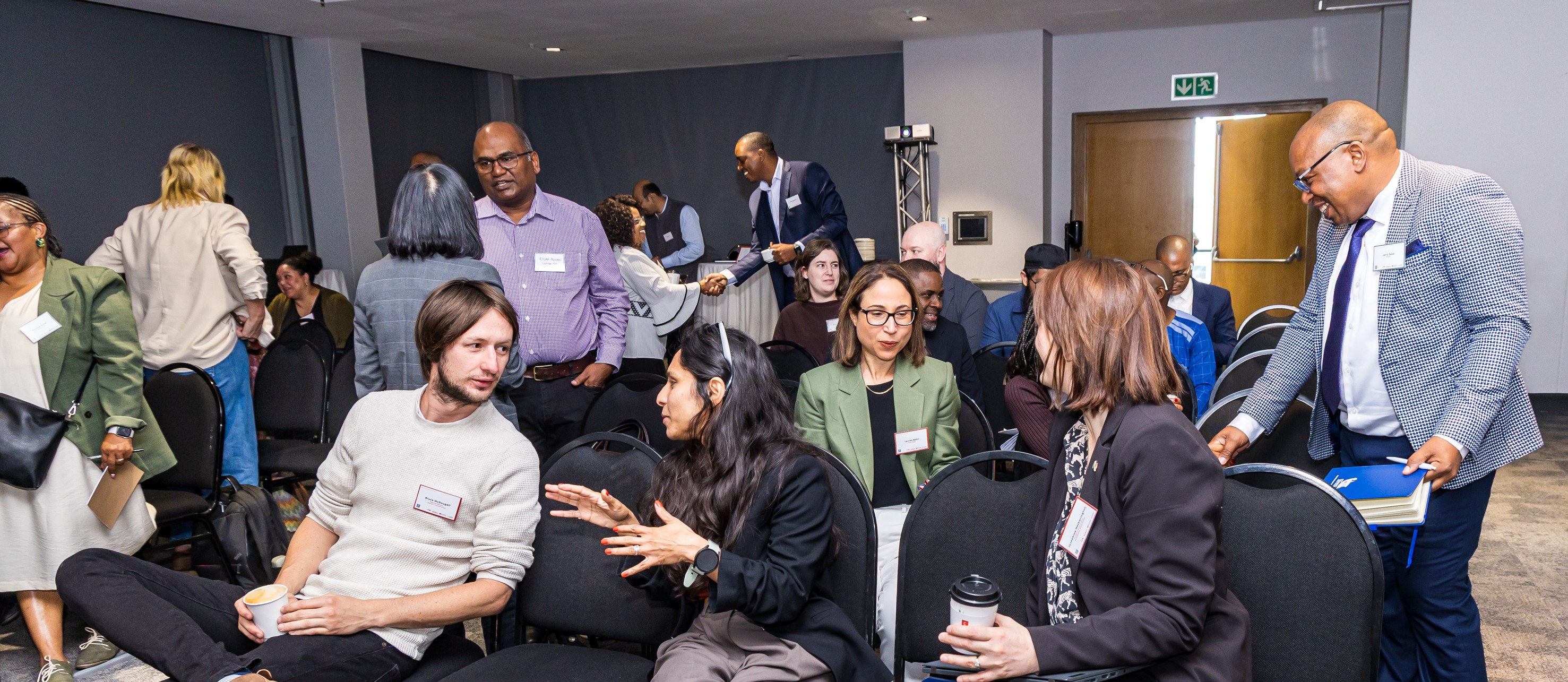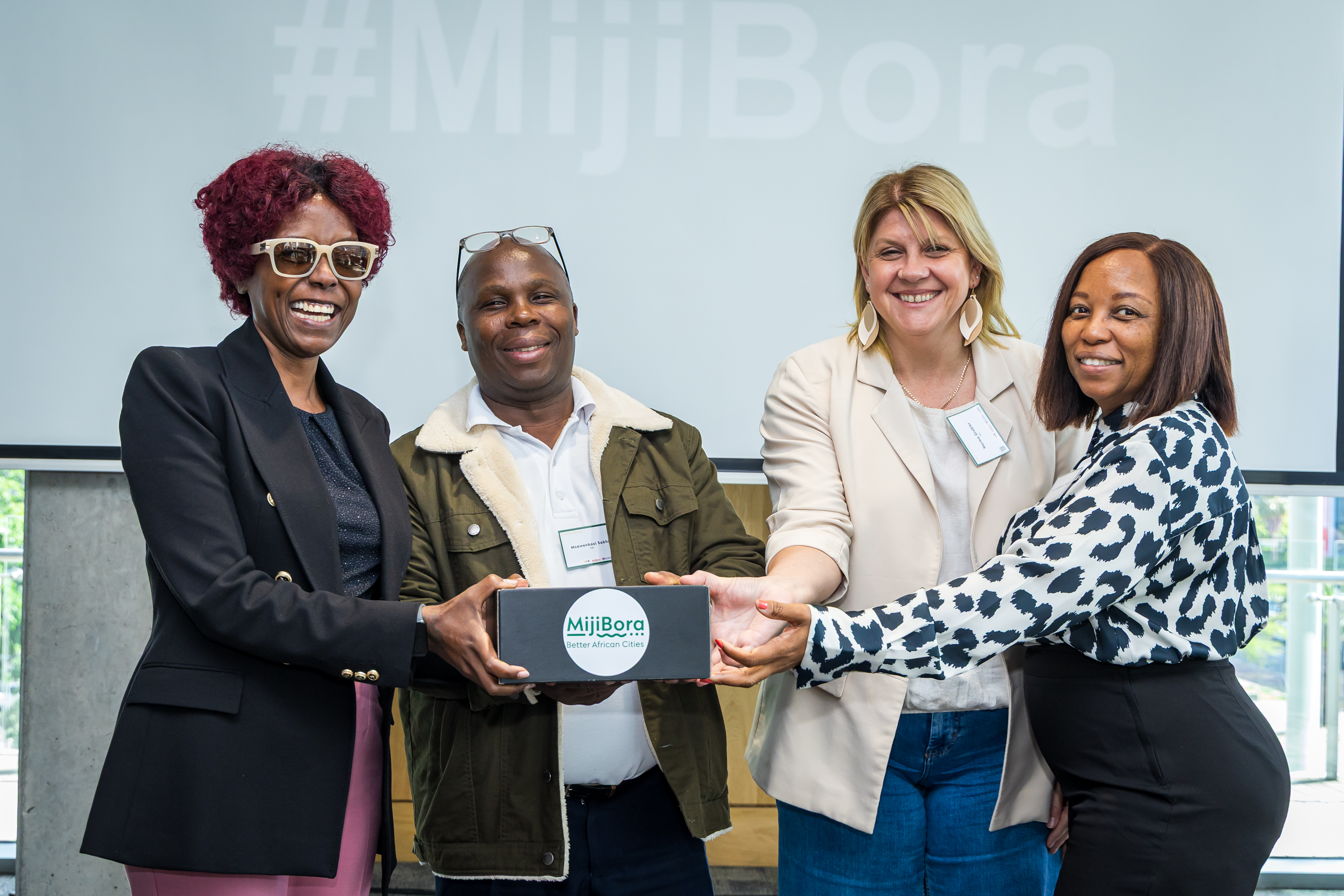How municipalities and ecosystem partners came together at the Global DPI Summit to advance a city-led Digital Public Infrastructure movement.
On 3 November 2025, on the sidelines of the Global DPI Summit in Cape Town, Open Cities Lab (OCL) and eGov Foundation brought together a powerful mix of South African municipalities and ecosystem partners for a conversation that was both overdue and transformative. Supported with funding from the UK Government, the MijiBora DPI Side Event was a unique gathering where 53 participants, including 21 municipal officials from 10 municipalities spoke honestly about the realities of digital transformation and what it will take to build the cities residents deserve.
The room was grounded with opening remarks from Josephine Hetherighton, the Head of Economic Development at UK Foreign, Commonwealth and Development Office of South Africa (FCDO). Josephine emphasised the need for evidence-based planning and high impact investments noting that:
“Good data makes it intolerable to do nothing”
These inspiring opening remarks set the stage for a day focused on practicality, collaboration, and municipal leadership.

The momentum surged with a firestarter conversation between Richard Gevers from the Digital Services Unit (DSU), South Africa, and Dr. Amollo Ambole from OCL. Their exchange translated Digital Public Infrastructure (DPI) into the everyday life of residents: shorter queues, faster services, more inclusion, fewer bureaucratic hurdles. Richard explained how shared digital rails and interoperable services can help cities engage residents holistically rather than through siloed systems. Municipalities did not hesitate to challenge Richard as they raised concerns about localisation issues, political realities, and even the impact of electricity loadshedding on digitisation. The conversation brought to the fore how strongly cities want to be active co-creators of the national digital strategy.
.jpg)
This sentiment came alive during the municipality pitches. In a series of use case presentations, each municipality articulated the practical challenges they are dealing with around fragmented data, legacy systems that don’t communicate, ageing infrastructure, revenue leaks, and manual processes that slow down critical services. Across these diverse contexts, a common message emerged. Municipalities are looking for interoperable digital tools that can help them demonstrate quick wins, strengthen service delivery, and rebuild internal confidence in their digital transformation journeys.

Partners echoed this call from municipalities during a pertinent ecosystem dialogue that highlighted how DPI is not just a technical challenge but a governance and trust challenge. Wasim Moosa from OCL spoke about integration barriers that cities face across South Africa. Lauren Kahn from Public Digital argued that true transformation begins with user needs and internal capability, not software. Robert Karanja from Co-Develop underscored the potential of digital public goods for scalable, Africa-first solutions. Krishnakumar T from eGov Foundation reminded the room that technology alone cannot succeed without underlying governance structures. Shabari Shaily Gerber from FCDO stressed the need for strong, long-term partnerships, especially in a funding climate where governments must learn to “do more with less.” Richard Gevers from Digital Services Unit echoed these reflections adding that cities must serve as the demand anchor for any sustainable DPI ecosystem.

Then came the moment when municipalities voiced what many had long been carrying, a call for co-creation, respect, and real agency. One official captured the sentiment with striking clarity:
‘We’re tired of being told what to do. National Government can’t keep directing us from above. We need a Community of Practice that helps us to speak for ourselves and advocate for our work.’
In this dialogue with ecosystem partners, municipal officials firmly articulated the need for a co-created DPI journey where cities shape priorities, influence national agendas, and build Communities of Practice that strengthen peer-to-peer learning. They asserted that without aligned supply chains, appropriate regulation, and coordination across all spheres of government, DPI simply cannot work.
In the afternoon, an eGov-led workshop helped participants translate DPI principles into practical solutions tailored to their contexts. Working in mixed groups, municipalities and partners defined service goals, mapped pain points, and identified both the solutions and the shared building blocks needed to realise them. The outputs ranged from grievance-redressal platforms to trade-related services, which were early illustrations of what city-led DPI can become when grounded in real service-delivery challenges and supported by implementation and policy experts.

As the day closed, municipal officials were recognised as MijiBora Champions for their efforts in advancing digital transformation within their municipalities.

The next phase for MijiBora is to make DPI work from the ground up, which will require coordinated action. To that end, OCL and eGov Foundation will follow up with municipalities and partners to consolidate use cases, schedule learning sessions, identify early wins, and define the technical assistance pathways that will inform the launch of MijiBora across Africa.
Join the movement. Become a MijiBora CoP member. Register here.